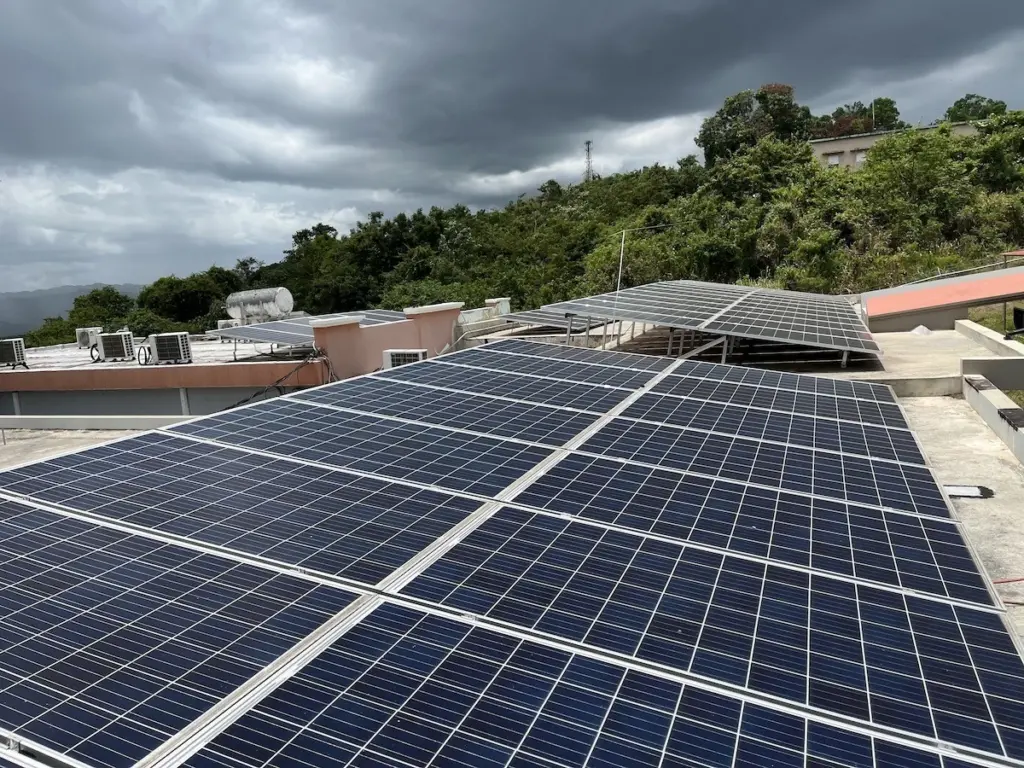One of the reasons University of Wisconsin-Madison students join Engineers Without Borders is to cross some actual borders—in most cases, participants travel abroad to help implement water, power or other development projects in regions far from the Badger State. But in the last couple of years, due to the COVID-19 pandemic, EWB’s work has been mostly virtual.
In May 2022, however, after a multiyear hiatus, EWB sent a crew of students to Puerto Rico to begin planning for work on a resiliency center, and the organization, currently led by many electrical and computer engineering students, says it hopes to get even more members overseas in the coming year.
When Hurricane Maria struck Puerto Rico in 2017, it more or less wiped out the island’s power grid. While the power system has been restored, many in the territory are fearful of repeating the weeks and months that followed the disaster in which they had no electricity and limited access to clean water. That’s why many communities are implementing resiliency projects, something EWB is well-suited to help with.
In 2018, EWB undertook a project to install a solar array for the Hogar Albergue para Niños Jesús de Nazaret children’s shelter in Mayaguez. After completion of that project, the student organization began planning for a resiliency center in Benitez, a town of 1,500 in the central mountains of Puerto Rico that lost power for seven months after Hurricane Maria. However, before the UW-Madison team could visit the site, the pandemic shut down international travel.

The students continued developing the plan from Madison, finding contractors and applying for permits for the project, which includes retrofitting a community center with solar panels and a rainwater catchment system.
It wasn’t until 2022, however, that the EWB team felt comfortable enough for a visit to get feedback from the community and conduct a formal site assessment.
“There’s only so much you can do on paper. That’s why it’s extremely important to visit and to use your time down there as wisely as you can to plan things out,” says Ryan Buchholz, an ECE senior and manager for the Puerto Rico project who participated in the trip. “There’s always something that comes up that changes your initial thoughts or perspectives about the site.”
Scott Woolf, an ECE senior and president of the group, agrees that EWB’s perspective on the project has changed after the site visit. “Remote work was definitely a big issue for our organization. Not being able to get to the communities even once a year and not being able to see the site and exactly what needs to be done messed things up a bit,” he says. “So it’s great we’re able to travel again, and a lot of good things are coming out of the trip.”
The Puerto Rico team hopes to finish its designs for the Benitez site by January 2023 and plans to begin implementation by spring 2023, all of which will require more visits to the island.
Puerto Rico isn’t the only project EWB is currently working on. Brenna Buck, a computer engineering senior, is the manager for a project in the Bungangwe-Buyobo villages in the Kamuli District of Uganda. EWB is building two schoolhouses, two dormitories and a latrine to serve over 240 students. Buck and her team hope to visit the site during winter break to inspect the schoolhouses, which should be under construction by then.
Other electrical and computer engineering students have taken leadership roles in EWB as well, including computer engineering senior Ethan Simonen, who will be subgroup lead for operations of the Puerto Rico project next year, and electrical engineering sophomore Nathan Gentz and computer engineering sophomore Nathan Woolf, who will both be design subgroup leaders on the project.
While the power-related elements of the Puerto Rico project have attracted many electrical engineers to EWB, Buck says there is work for students from all disciplines on their projects.
“I was surprised by the immense variety of majors within this club,” she says. “Our Uganda project is focused on civil engineering, but we have two civil engineers, a lot of biomedical engineering students, and computer and electrical engineers. My fellow project manager is from materials science. It has been something I’ve absolutely loved, because of all the different disciplines working together. They’re learning the same things, which may be outside their own education, and finding ways to incorporate that back into the field they want to pursue.”